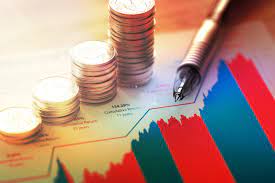Prestige Professional Management
Your Consumer Resource Specialist
Money Market Accounts
A money market account is a type of savings account offered by banks and credit unions just like regular savings accounts. The difference is that they usually pay higher interest, have higher minimum balance requirements (sometimes $1000-$2500), and only allow three to six withdrawals per month. Another difference is that, similar to a checking account, many money market accounts will let you write up to three checks each month.
With bank accounts, the money in a money market account is insured by the Federal Deposit Insurance Corporation (FDIC), which means that even if the bank or credit union goes out of business (which is very rare) your money will still be there. The FDIC is an independent agency of the federal government that was created in 1933 because thousands of banks had failed in the 1920s and early 1930s. Not a single person has lost money in a bank or credit union that was insured by the FDIC since it began. With credit unions, the money in a money market account is insured by the National Credit Union Administration (NCUA), a federal agency.
Money earning even more money!
When you put your money into a money market savings account it earns interest just like in a regular savings account. Interest is money the bank pays you so that they can use your money to fund loans to other people. That doesn't mean you can't have your money whenever you want it, though. That's just how banks make money -- by selling money! Basically, it works like this:
- You open a money market account at the bank.
- The bank pays you interest on the money that you deposit and leave in that account.
- The bank then loans that money out to other people, only they charge a slightly higher interest for the loan than what they pay you for your account.
- The difference in interest they pay you verses the interest they charge others is part of how they stay in business.
How does interest work?
- Interest on money market accounts is usually compounded daily and paid monthly. The cool thing about compounded interest is that the bank is paying you interest on the money they've paid you in interest!
- Interest rates paid by money market accounts can vary quite a bit from bank to bank. That's because some banks are trying harder to get people to open an account with them than others -- so they offer higher rates.
- Another difference you'll sometimes find with money market accounts is that the more money you have in the account the higher the interest rate you get. Always check with the bank about how the interest rate may change.
It can cost you!
Like a basic savings account, money market accounts let you withdraw your money whenever you want. However, you usually are limited to a certain number of withdrawals each month. Banks will usually charge a fee (typically around $5) if you don't maintain a certain balance in your money market account. There may also be a fee (typically around $5-10) for every withdrawal in excess of the maximum (usually six) the bank allows each month.
Because of these possible fees, you should always shop around and compare what different banks are offering. Things you should look at include:
- Fees and services charges on the account
- Minimum balance requirements
- Interest rate paid on your balance
What happens once you have a money market account?
With a money market account you'll get a small book called a register (like a checkbook register) where you write in your beginning balance (the amount you originally deposit) and all of your future deposits and withdrawals. This tool helps you keep track of how much money you have.
Each month, your bank (or credit union) will send you a statement of your account either in the mail or by e-mail if you prefer. The statement will list all of your transactions as well as any fees charged to your account and interest your money has earned. In order to make sure you didn't forget to write down any withdrawals and/or deposits (and also to double-check the bank's activities) you should go through each entry in your register and compare it with the bank statement. They should match up -- this process is called reconciling. If they don't, you'll need to find your mistake and correct it in your register (unless it is a bank error, but that isn't very likely).
The only other thing is to remember to make regular deposits into your money market account
and sit back and watch your money grow even faster!

